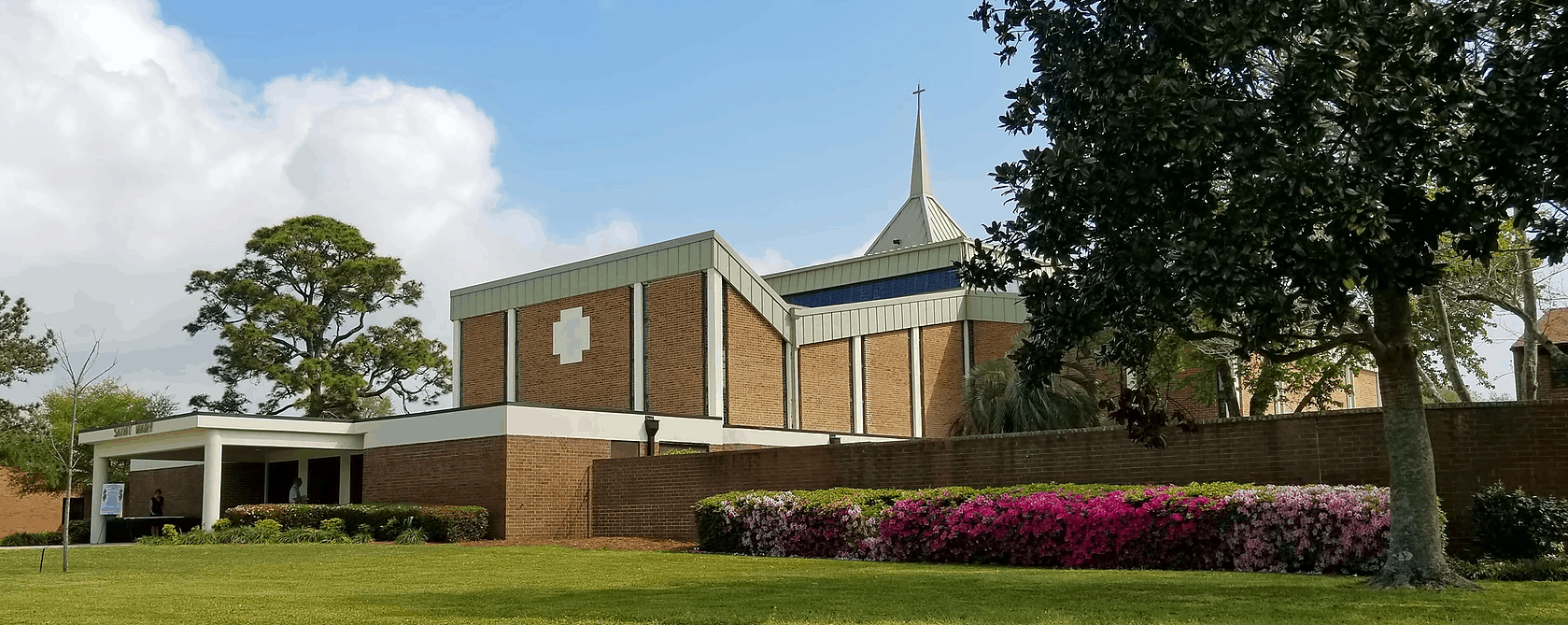
You Can Do Hard Things Wk 4: Serve
For the last four weeks we have been talking about how Jesus regularly challenges us to do hard things. They are not easy but if Jesus did not think we could do them, he would not challenge us to rise to the occasion and do them. Sometimes it is hard to find the time to pray regularly, so three weeks ago we discussed prayer, and gave you the PRAY acrostic to help you.. The following week we discussed tithing, and how God challenges us into a holy exchange of gifts with him. Being generous changes your outlook on God and life. Last week we looked at encountering and engaging with Jesus during the reception of Holy Communion. You can find all of those on our website saintmary.life. This week, let’s talk about love.
The greatest commandment is to love – love God, love neighbor, and love yourself appropriately. This says we are made for relationship and community, relationship with God, and others. When two people love each other, one of the primary ways they show that relationship of love is by getting married. Another way we show our love for God and others is by serving them. One of the interesting things about marriage is that the church calls it a sacrament of service.
Jesus makes some interesting comments today about marriage, love, service, and heaven.
When someone we love passes away, we usually console ourselves with the thought that they will be reunited with their loved ones in heaven. It gives us comfort to think that they will be able to see family members, friends, and especially their husbands and wives again. This is especially true when a husband and wife have been separated by death for many years. The thought of them holding hands again and being able to enjoy each other’s company again gives us some hope when our hearts are full of grief.
But how does this square with Jesus’ words in today’s gospel – “The children of this age marry and remarry; but those who are deemed worthy to attain to the coming age and to the resurrection of the dead neither marry nor are given in marriage.”
Maybe that causes you to wonder, if you will no longer be married in heaven, whether you will still be together, or if your love for your spouse will somehow be different in heaven because you are no longer married. Or when we’re in heaven, will we still know the people we loved in this life and still be able to recognize them?
Jesus is NOT telling us in today’s gospel that we will be separated from our loved ones in heaven. And he certainly does not mean that we will not be able to be with them. On the contrary, heaven is a place of perfect happiness, and a big part of that happiness will be reuniting with those we have loved here on earth, particularly husbands and wives who were united in the sacrament of marriage in this life.
Husbands and wives who enter into the glory of heaven will not lose their love for each other. Rather, they will love each other even more. Heaven is a place where love is made perfect in us. So we will love each other even more deeply and truly then we did on earth, with no hint of selfishness or jealousy. If God judges us worthy to enter into eternal life, then we will be reunited with those we loved in this life, we will love them even more perfectly then we did hear on earth, and our joy will be complete.
The point Jesus is trying to make is that, in heaven, marriage will no longer be necessary because one of the purposes of marriage is to cooperate with God in bringing new life into the world. We call that the pro-creative aspect of marriage. Before a couple exchange their marriage vows the priest or deacon will ask them both: “Will you accept children lovingly from God, and bring them up according to the law of Christ and his Church?” When a man and woman give themselves to each other in the sacrament of marriage, they bring children into the world who will one day also have children. For this world to continue, we need married couples to continue to be open to new life. That is because, in this life, people die, so we need more people to keep the human race going. However, in heaven, there is no death; therefore, there is no need to reproduce new life. Also, at the end of the world, God’s work of creation will be done and his work of generating new life through the sacrament of marriage will also be done.
Besides bringing new children into the world, the purpose of marriage is for a husband and wife to love each other so completely that they reflect the love of God to all the world. This is called the unitive aspect of marriage. Marriage is a sacrament, because it is a living sign of God’s love.
However, if we are judged worthy to enter into heaven, we will see God face-to-face. His love will be evident to us. We will not need any other signs to show us that love. So we will not need the sacrament of marriage to show us the faithful love of God because we will be able to see it for ourselves. So, the reason that we will not be married in heaven is because everything that God intended marriage to be on earth will be fulfilled in heaven. But that does not mean that we will be separated from our loved ones. Rather, we will be reunited with them in a perfect love and nothing will ever be able to separate us from them again.
Jesus’ words about the life of heaven also shed light on the decision that priests and those who enter the consecrated life – such as nuns and religious brothers – make to not get married. The obligation of celibacy frees them up to serve the people of God. But it is also an invitation to show forth already in this world the life we will be living in the world to come. Just as in heaven we will neither marry nor be given in marriage, so too on earth, those who serve us as priests and religious sisters and brothers point us to that future world to come by forgoing marriage in the here and now. Every priest and every religious woman is meant to remind us of where our true home and what our true destiny is – the eternal life of heaven.
While those in religious life and priests are called to live a life without marriage, it does not mean that they are called to live without love. On the contrary! Theirs is a calling to love the people of God without exception. A married couple forgoes the love of others to give themselves to one person. Priests, religious sisters, and religious brothers forgo the love of one person so that they can give themselves to all people. And in so doing, they show forth the love of God to the world and point to his desire to unite all people one day in the perfect love of heaven.
Now, if we want to reach the joy of heaven, we have to be living in a way that reflects the love of God – whether we are married, single, or in consecrated life. If we have accepted God’s love in this life, then we will rush into his arms when we die and see him face-to-face. However, if we have refused his love and failed to share it with others, then we will run away from his love when he shows us his face at the hour of our death. In fact, if we have hardened our hearts through selfishness in this life, it will be painful to see God’s love. We will choose to isolate ourselves from him after we die just as we chose to isolate ourselves from him while we lived on earth.
Jesus assures us that there is a world beyond this world and a life beyond this life. The whole reason why he came down from heaven was to lead us back there. In the life of the world to come, there will be no marriage because there will be no more death. And, in heaven, God’s faithful love will be revealed to us in all its beauty. If we want to experience that eternal life for ourselves, then we have to put that love into practice here on earth, no matter what state of life we might be called to. We show that love through service to God and each other. Service to others and God is not always easy, but doing hard things, like serving, out of love makes them significantly easier in the long run.
If we live our lives that way, not only will we have the hope of entering heaven in the future, we will be making the earth a better place in the here and now.


